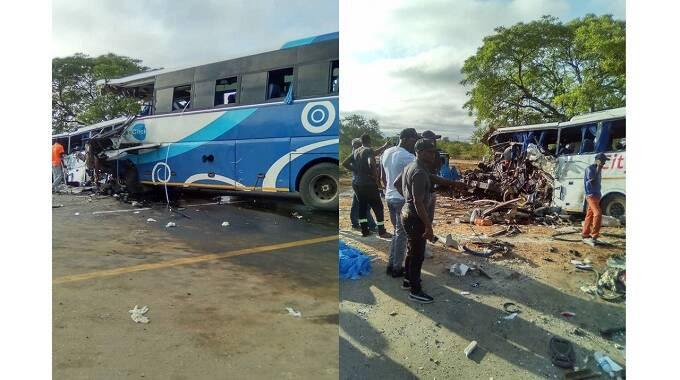Reliving the maiden Uhuru experience

Isdore Guvamombe
The date is April 17 1980.
Under the silhouette sunset horizon, cattle herders tethered goats to pegs with sisal ropes and penned the cattle.
Soon, the goats and cattle started chewing the cud, resigning to their boring nocturnal captivity.
Birds flew to their nests while hens crackled to the chicken runs.
Momentarily, the village went agog with children playing in the dusk, their sturdy legs caked with a mixture of cow dung, mud-paste and dust.
The boys started playing paper ball, oblivious of the time limit as the sun buried itself beyond the western horizon.
Small girls played boxes, their dresses tucked into their pants and running across the boxes on spindly legs.
Women and elderly girls criss-crossed the hodgepodge of paths in last-minute hemming together of domestic chores for the long night. The smell of cooking food was abound from every kitchen.
Each child knew exactly what time to go home, for the war had just ended, but there was still a possibility of it resuming. Everyone in the village was bidding farewell to the day and indeed, bidding farewell to an era.
Bidding farewell to Rhodesia.
The night suddenly went oppressively silent. The evening slipped into the night and so did Rhodesia slide and slither into Zimbabwe.
The only sound the villagers could hear was screeching crickets, the distant hoot of the owl and the howling of the jackal.
Even the night was dangerously quiet and pregnant with the anticipation of the next day’s activities. Tree branches sang in harmony with the easterly winds.
Men sat around fires, discussing a major event that was about to change the fortunes of the black majority.
It was an event too good to believe — a chance too good to miss and a destiny all and sundry in the black community of Rhodesia was waiting for. Zimbabwe.
But as the norm in the village, it was taboo to discuss matters of State and governance on dry throats and equally taboo to participate in serious matters while sloshed.
So, they drank a little from their calabashes, leaving room for tomorrow.
Suddenly, the village went to sleep, everyone no longer milking from behind the ears, promising to wake up early and fulfil a promise to endorse his or her liberation from colonial bondage. Rhodesia was a forlorn affair, very few people would go back to it. Maybe only sell-outs and die-hard Rhodesians. The villagers had made sure Rhodesia was dead and buried.
At dawn on April 18 – the time when elephants normally bathed in Dande River- many villagers came out of the stupor of sleep and hurriedly carried out their domestic chores in preparation for the celebrations.
Then, the sun shone brilliantly and villagers gathered at Muzika primary School, greeting each other effusively, cheering and enjoying the dawn of a new era.
Many people intermittently gathered around a small radio to catch up with the main event in Harare, breaking in cheers, slogan, dance and song.
Cattle, goats, sheep and chicken were slaughtered. Drums of food boiled on huge bonfires, whose tongues of flames licked the exterior metal with a passion.
Food and drinks were plenty. White farmers sent their workers on tractors and lorries to join in the celebrations. Zimbabwe had come.
“Pemberai, Pemberai
Pemberai, pemberai vakoma
Hona tayambuka!
Hiyaho hiyaho hiya pemberai!
Nyika yababa . . . Tichichangozvitonga
Nevachatevera, nevana vevana . . . vachangozvitonga..!
Inhaka yababa . . . Pemberai!” so sang a youngish and spike-haired Thomas Mapfumo from the shrieking gramophone!
Villagers danced and raised the dust. Their bodies shaking off the dark memories of Rhodesia. They sweated it out through bum-jive, kongonya and chamusasura dances.
There was deft footwork, body shaking and waist-wriggling. When night fell, it was as if that was dawn.
No one went home. The dancing and feasting continued.
In the aftermath of the celebrations, the grounds had nothing but dust and gnawed bones, empty and half-empty bottles and the villagers were seen snoring in various corners and postures.
Some members, overcome by drink and fatigue, sprawled in various corners, for in Rhodesia all they had enjoyed was forced labour, dehumanising treatment and suffering.
This was the dawn of a new era. News from the main celebrations in Harare, then Salisbury, continued to filter through radio. The Union Jack, the British flag had been lowered by Prince Charles (now King Charles) and the Zimbabwean flag was now flying high.
News filtered that Bob Marley had played at the main celebrations at Rufaro and by public demand he was to play again that day.
Soon, a white commercial farmer, affectionately known as Chimusoro, because of his egg-shaped head, was approached and in the euphoria of independence, he provided a lorry and it was packed for the Marley show.
Many villagers got to Harare for the first ever time ever because of independence. How fascinating and unbelievable!
For many weeks to come the village was agog with stories from Harare and the Bob Marley show. Reggae became everyone’s music. Everyone became Rasta.
Rhodesia had been restrictive. Many blacks would not make it to Harare without an official invitation from an employer.
Women without marriage certificates would not make it to Harare. But this day, Harare became a free for all. This day, black people became equal to any other race.
The bars were now free for all. The insignia: “No Blacks No Jews” was pulled down.
Areas preserved for white people became a free for all. Zimbabwe was now free.
Independence had come for sure.









Comments